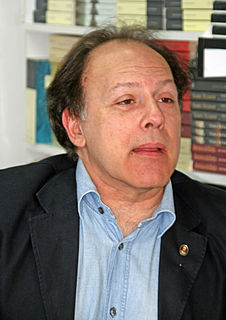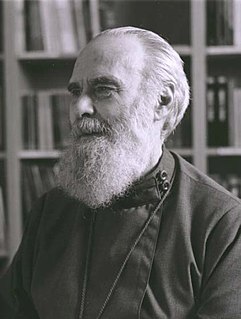A Quote by William Hazlitt
The contemplation of truth and beauty is the proper object for which we were created, which calls forth the most intense desires of the soul, and of which it never tires.
Related Quotes
The truth never shines forth, as the saying goes, because the only truth is that which is known to no one and which remains untransmitted, that which is not translated into words or images, that which remains concealed and unverified, which is perhaps why we do recount so much or even everything, to make sure that nothing has ever really happened, not once it's been told.
It seems to me, and I am personally convinced, that the Church must never speak from a position of strength. [These are shocking words.] It ought not to be one of the forces influencing this or that state. The Church ought to be, if you will, just as powerless as God himself, which does not coerce but which calls and unveils the beauty and the truth of things without imposing them. As soon as the Church begins to exercise power, it loses its most profound characteristic which is divine love [i.e.] the understanding of those it is called to save and not to smash.
I have neither the scholar's melancholy, which is emulation; nor the musician's, which is fantastical; nor the courtier's, which is proud; not the soldier's which is ambitious; nor the lawyer's, which is politic; nor the lady's, which is nice; nor the lover's, which is all these: but it is a melancholy of mine own, compounded of many simples, extracted from many objects, and indeed the sundry contemplation of my travels, which, by often rumination, wraps me in a most humorous sadness.
Religion is among the most beautiful and most natural of all things - that religion which 'sees God in clouds and hears Him in the wind,' which endows every object of sense with a living soul, which finds in the system of nature whatever is holy, mysterious and venerable, and inspires the bosom with sentiments of awe and veneration.
Christianity sees plants and flowers as created by God to show forth and share with humans the divine goodness, beauty and truth - the purpose of all Creation. In this flowers may be enjoyed simply and directly in themselves as showing forth God's goodness and beauty, or, more fully, as archetypes, signatures, symbols, and bearers of legends, mirroring the revealed articles of Christian faith - thereby serving as means for their teaching, recollection, contemplation and celebration.
Religious truth is captive in a small number of little manuscripts which guard the common treasures, instead of expanding them. Let us break the seal which binds these holy things; let us give wings to truth that it may fly with the Word, no longer prepared at vast expense, but multitudes everlastingly by a machine which never wearies to every soul which enters life.




































